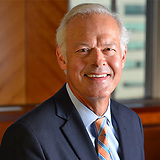The Supreme Court ruled (5-4) this week in Greece v. Galloway that the Upstate New York town of Greece’s practice of opening its town board meetings with a prayer (given by clergy selected from a local directory) does not violate the First Amendment’s Establishment Clause. Certain facts limit the Court’s ruling: the prayer was “legislative prayer” directed to the lawmakers (not the public) as an opening/ceremonial invocation with no proof of intentional discrimination in choice of clergy (i.e. they could be from any religious denomination). The Court majority said it would not require that such prayers be generic or nonsectarian, since courts shouldn’t be in the business of rewriting prayer content, which would itself intrude government into religion.
“Coercion” is a key word in Establishment Clause cases. The First Amendment prohibits government from coercing citizens to support or participate in any religion or its exercise. The facts make a big difference, case-to-case, since what is and isn’t coercion is a question of fact. The Court found the town board’s prayer practice to be non-coercive. The majority cites American democracy’s “history and tradition” of this type of legislative prayer being acceptable, all the way back to the Framers. In other words, if the Framers, Congress and the Court itself (opening its sessions with “God save the United States and this honorable Court”) have not seen coercion in such opening, ceremonial invocations, then it’s okay for the town of Greece.
Norman Rockwell's interpretation of the Constitutional principle of free exercise of religion.

